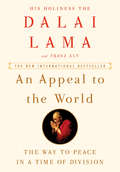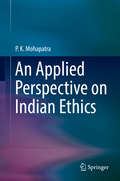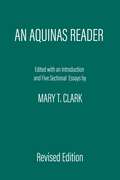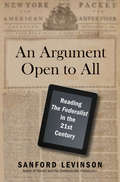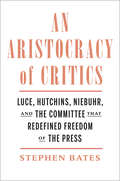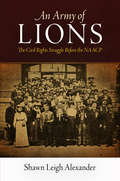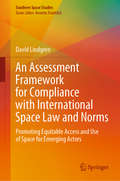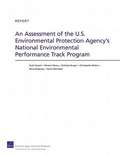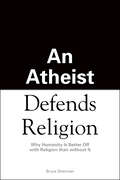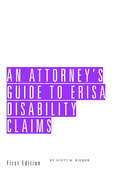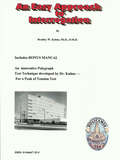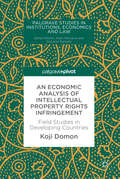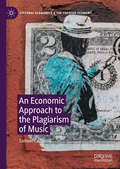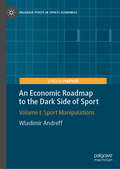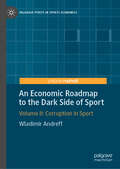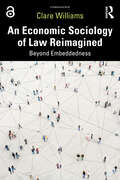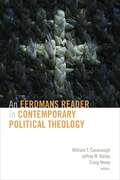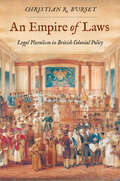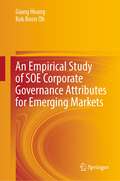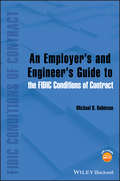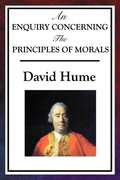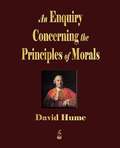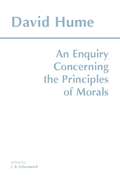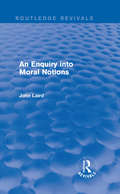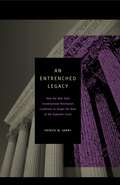- Table View
- List View
An Appeal to the World: The Way to Peace in a Time of Division
by Dalai Lama Franz AltThe #1 international bestseller that “makes the case for unity in a world rife with divisions.” Features exclusive new material on the Trump presidency (The New York Times Book Review).In this brief yet profound address to global humanity, His Holiness the Dalai Lama of Tibet reveals that we all hold the seeds of world peace within us: “I see with ever greater clarity that our spiritual well-being depends,” the Nobel Peace Prize winner writes, “on our innate human nature, our natural affinity for goodness, compassion, and caring for others.”Already a major international bestseller, An Appeal to the World, the new book by one of the most revered spiritual leaders of our time, outlines both the inward and outward paths to peace, addressing a wide range of contemporary topics—from the rise of nationalism, Trump presidency, refugee crisis, climate catastrophes, and materialism to meditation, universal ethics, and even neuroscience. Here is a small book that can truly change the world.“Always inspiring and accessible, this lovely book is, itself, readers will discover, worth meditation and contemplation.” —Booklist“The authors explain how patience, forbearance, humility, and generosity are essential components of secular ethics. This revolution in thinking has the potential to increase empathy and compassion, as life is interdependent and our actions have global impacts.” —Library Journal
An Applied Perspective on Indian Ethics
by P. K. MohapatraThis book presents a novel interpretation of major problems of Indian ethics from an applied ethical perspective. It approaches prominent theories like Dharma, Karma and Purusarthas from a critical point of view, so as to render them logically consistent and free from some standard limitations. Ethical theories are meant to provide guidance for life, but quite often many of our celebrated theories appear to be inapplicable or difficult to apply in practical life. Indian ethical theories are of special significance to this problem because they have in them rich potentials of applicability as much as many of them typify inapplicable abstract theories of morals. The book incorporates a wealth of research on ethical theories, keeping in view the spirit of ethics and the demands of the situations; for a reasoned balance between the two is the key to applied ethics. The book argues that ethical theories are objective but defeasible in overriding circumstances where competing values deserve preference. Such justified exceptions are warranted by the very spirit of ethics, which is to promote the good life. The argument from defeasibility and justified violation in the book helps bridging the gap between ethics and its application and makes Indian theories of value appear in fresh light- workable, practically applicable and effective as incentives for morality. With uncommon virtue of contemporized presentation of Indian ethics, this book should be of interest to scholars and researchers working on Indian ethics and moral philosophy, as well as to those interested in Indian culture and value tradition.
An Aquinas Reader: Selections from the Writings of Thomas Aquinas
by Mary T. ClarkAvailable in a new digital edition with reflowable text suitable for e-readersThis new edition of An Aquinas Reader contains in one closely knit volume representative selections that reflect every aspect of Aquinas’s philosophy. Divided into three section – Reality, God, and Man – this anthology offers an unrivaled perspective of the full scope and rich variety of Aquinas’s thought. It provides the general reader with an overall survey of one of the most outstanding thinks or all time and reveals the major influence he has had on many of the world’s greatest thinkers. This revised third edition of Clark’s perennial still has all of the exceptional qualities that made An Aquinas Reader a classic, but contains a new introduction, improved format, and an updated bibliography.
An Argument Open to All
by Sanford LevinsonIn "An Argument Open to All, " renowned legal scholar Sanford Levinson takes a novel approach to what is perhaps America's most famous political tract. Rather than concern himself with the authors as historical figures, or how "The Federalist" helps us understand the original intent of the framers of the Constitution, Levinson examines each essay for the "political" wisdom it can offer us today. In eighty-five short essays, each keyed to a different essay in "The Federalist, " he considers such questions as whether present generations can rethink their constitutional arrangements; how much effort we should exert to preserve America's traditional culture; and whether "The Federalist"'s arguments even suggest the desirability of world government. "
An Aristocracy of Critics: Luce, Hutchins, Niebuhr, and the Committee That Redefined Freedom of the Press
by Stephen BatesThe story behind the 1940s Commission on Freedom of the Press—groundbreaking then, timelier than ever now"A well-constructed, timely study, clearly relevant to current debates."—Kirkus, starred review In 1943, Time Inc. editor-in-chief Henry R. Luce sponsored the greatest collaboration of intellectuals in the twentieth century. He and University of Chicago president Robert Maynard Hutchins summoned the theologian Reinhold Niebuhr, the Pulitzer-winning poet Archibald MacLeish, and ten other preeminent thinkers to join the Commission on Freedom of the Press. They spent three years wrestling with subjects that are as pertinent as ever: partisan media and distorted news, activists who silence rather than rebut their opponents, conspiracy theories spread by shadowy groups, and the survivability of American democracy in a post-truth age. The report that emerged, A Free and Responsible Press, is a classic, but many of the commission&’s sharpest insights never made it into print. Journalist and First Amendment scholar Stephen Bates reveals how these towering intellects debated some of the most vital questions of their time—and reached conclusions urgently relevant today.
An Army of Lions
by Shawn Leigh AlexanderIn January 1890, journalist T. Thomas Fortune stood before a delegation of African American activists in Chicago and declared, "We know our rights and have the courage to defend them," as together they formed the Afro-American League, the nation's first national civil rights organization. Over the next two decades, Fortune and his fellow activists organized, agitated, and, in the process, created the foundation for the modern civil rights movement.An Army of Lions: The Civil Rights Struggle Before the NAACP traces the history of this first generation of activists and the organizations they formed to give the most comprehensive account of black America's struggle for civil rights from the end of Reconstruction to the formation of the National Association for the Advancement of Colored People in 1909. Here a host of leaders neglected by posterity--Bishop Alexander Walters, Mary Church Terrell, Jesse Lawson, Lewis G. Jordan, Kelly Miller, George H. White, Frederick McGhee, Archibald Grimké--worked alongside the more familiar figures of Ida B. Wells-Barnett, W. E. B. Du Bois, and Booker T. Washington, who are viewed through a fresh lens.As Jim Crow curtailed modes of political protest and legal redress, members of the Afro-American League and the organizations that formed in its wake--including the Afro-American Council, the Niagara Movement, the Constitution League, and the Committee of Twelve--used propaganda, moral suasion, boycotts, lobbying, electoral office, and the courts, as well as the call for self-defense, to end disfranchisement, segregation, and racial violence. In the process, the League and the organizations it spawned provided the ideological and strategic blueprint of the NAACP and the struggle for civil rights in the twentieth century, demonstrating that there was significant and effective agitation during "the age of accommodation."
An Assessment Framework for Compliance with International Space Law and Norms: Promoting Equitable Access and Use of Space for Emerging Actors (Southern Space Studies)
by David LindgrenThis book proposes a framework for assessing countries’ levels of compliance with international space law and norms. It begins by exploring the development of two movements – the evidence-based policymaking and programming movement, and the rise of ratings and rankings research – and their growth across various disciplines. The analysis suggests that such efforts are useful in gauging the behavior of countries in space according to how well they adhere to existing space law and norms. To date, there is no comprehensive, periodic, and systematic measure of countries’ efforts to comply with space law and norms; this work endeavors to fill that gap by offering a framework in which to assess compliance. Applying the framework results in five possible ratings that a country may be assigned, ranging from highly compliant to non-compliant. Ideally, the proposed framework can be used to promote compliance, and with it, space security and sustainability.
An Assessment of the U.S. Environmental Protection Agency's National Environmental Performance Track Program
by Rena Rudavsky Noreen Clancy Nicholas Burger Christopher Nelson Scott HassellThis report addresses the conceptual basis, design, and implementation of the National Environmental Performance Track program. The voluntary program sought to encourage facilities to improve their environmental performance and provide a more collaborative relationship between facilities and regulators. While the program had mixed success, EPA should continue to seek out new approaches to complement and enhance traditional regulatory approaches.
An Athiest Defends Religion: Why Humanity Is Better Off with Religion than without It
by Bruce SheimanA new perspective. Defending religion as a cultural institution in the face of resurgent atheistic thought For centuries, the theism-atheism debate has been dominated by two positions: stringent believers committed to the "yes, there is a God" argument, and atheists vehemently driven to repudiate not only God, but also religion as a cultural institution. To date, this is the first and only mainstream book in which a nonbeliever criticizes atheism and affirms religion. An Atheist Defends Religion persuasively argues that religion is overwhelmingly beneficial for humanity, regardless of whether God exists, based on a new paradigm of 10 affirmative dimensions that make up religious experience. It also puts to rest the theory that religion is behind most of the world's sectarian violence by showing that religion becomes evil when it is politicized. Readers will learn they do not have to be fundamentalists to be believers, and about the value and benefits of religion itself.
An Attorney's Guide to ERISA Disability Claims
by Scott RiemerAn Attorney's Guide to ERISA Disability Claims is an essential resource that gives you the specialized knowledge you need to thoroughly prepare ERISA disability claims through both the initial application process and the insurance company's appeal process. Disability insurers scrutinize claims for any shred of evidence to support a decision that the insured can still perform her occupation. Sometimes just a line or two in the doctor's treatment notes or a minute on a surveillance video is enough. In assessing an occupation's requirements, insurers routinely ignore significant demands, such as travel, long hours, high stress, and quick thinking. This comprehensive guide tells you how to anticipate and respond to these and similar (sometimes outrageous) insurer tactics. The surest way to resolve your client's ERISA disability claim favorably without litigation is to follow Scott Riemer's guidance. Prepare your client's application and appeal as though you expect litigation to be necessary. When insurers know you are ready for court, they are more likely to pay the claim and save litigation for someone else's client. If you do need to litigate, you will be ready.
An Easy Approach to Interrogation
by Bradley W. Kuhns, Ph.D., O.M.D.Here is a book for anyone in the investigation field. Dr. Bradley W. Kuhns, recognized internationally for his interview and interrogation skills presents you with a lifetime of specialized techniques he has developed. Successful interview and interrogation is the mainstay of any investigation. This book is crammed with successful approaches, techniques and strategies. It also refers to legal principles and how they relate to interview and interrogation. For those investigators using polygraph this book also has a bonus of a unique polygraph S.P.O.T. test procedure that was develpoed and researched and field tested by Dr. Kuhns. If you use Dr. Kuhns techniques you will develop your investigative skills with successful results.
An Economic Analysis of Intellectual Property Rights Infringement: Field Studies in Developing Countries (Palgrave Studies in Institutions, Economics and Law)
by Koji DomonUsing unique field research from across Asia, this book examines the real markets of illicit products that breach intellectual property rights (IPR). The text presents three case studies regarding IPR infringements: unauthorised music content; fake spare parts of motorcycles; and fake Japanese food. Each study has unique characteristics, though their general concepts and problems have similar roots. The book shows what is happening in the black market and systems of illicit trade, providing information for stakeholders in Intellectual Property Rights to consider in devising effective methods for minimizing profits lost to copied and fake products.
An Economic Approach to the Plagiarism of Music (Cultural Economics & the Creative Economy)
by Samuel CameronThis book is an economic analysis of plagiarism in music, focusing on social efficiency and questions of inequity in the revenue of authors/artists. The organisation into central chapters on the traditional literary aspect of composition and the technocratic problem of ‘sampling’ will help clarify disputes about social efficiency and equity. It will also be extremely helpful as an expository method where the text is used in courses on the music business.These issues have been explored to a great extent in other areas of musical content—notably piracy, copying and streaming. Therefore it is extremely helpful to exclude consumer use of musical content from the discussion to focus solely on the production side. This book also looks at the policy options in terms of the welfare economics of policy analysis.
An Economic Roadmap to the Dark Side of Sport: Volume I: Sport Manipulations (Palgrave Pivots in Sports Economics)
by Wladimir AndreffThis Palgrave Pivot provides a comprehensive overview of economic aspects to criminal behaviour in sport. It addresses manipulations, dysfunctions, distortions and crimes triggered by economic interests or pure greed in sports, and challenges the governance of this important industry. Topics covered include hazing, sabotage, refereeing bias, technological manipulations, tanking, bad management, financial doping, ticket touting, circumventing the law through sport, discrimination and child labour.The book is divided into three volumes. Volume I covers those economic manipulations that breach sports rules, sporting integrity, violate managerial rules and the law, and infringe human rights in sport. It builds up a typology of sport manipulations which makes sense from an economic standpoint, not only from a sporting or judicial perspective.Volumes II and III (available separately) focus on Corruption and Economic Crime in Sport, respectively.This book will be of interest to students, researchers and journalists in sports science, sports management and sports economics.
An Economic Roadmap to the Dark Side of Sport: Volume II: Corruption in Sport (Palgrave Pivots in Sports Economics)
by Wladimir AndreffThis Palgrave Pivot surveys facts and cases exhibiting and exemplifying corruption in sport. The standard economic theory (economics of crime, game theory) is introduced alongside the economic methods (sanctions, etc.) which are currently derived from it to combat corrupt sport and their limitations. The complexity and multidimensional nature of sports corruption are examined, and a focus is applied to certain types of corruption that are unique to the sports industry. Corruption is revealed to be the outcome of weak and deficient governance structures. The book is divided into three volumes. Volume II presents a variety of corruption facts in different sports, in different countries and continents in order to exhibit how much corrupt sport is globalised. Some changes in governance are suggested that may pave the way to more effective combat against corruption in sports. Volumes I and III (available separately) address Sport Manipulations and Economic Crime in Sport, respectively. This book will be of interest to students, researchers and journalists in sports science, sports management and sports economics.
An Economic Sociology of Law Reimagined: Beyond Embeddedness
by Clare WilliamsThis book critically examines the concept of “embeddedness”: the core concept of an economic sociology of law (ESL). It suggests that our ways of doing, talking, and thinking about law, economy, and society, reproduce and re-entrench mainstream approaches, shaping our thoughts and actions such that we perform according to the model. Taking a deep dive into one example – the concept of embeddedness – this book combines insights from law, sociology, economics, and psychology to show that while we use metaphor to talk about law and economy, our metaphors in turn use us, moulding us into their fictionalized caricatures of homo juridicus and homo economicus. The result is a groundbreaking study into the prioritization throughout society of interests and voices that align with doctrinal understandings of law and neoclassical understandings of economics: approaches that led us into the dilemmas currently facing society. Zooming out from a detailed exploration of embeddedness in economic sociology and ESL literature, the book unpacks the fashionable post-2008 claim that the economy should be re-embedded in society and proposes two conceptual shifts in response. The book draws on personas and vignettes throughout, both to imagine and to realize shifting an ESL beyond embeddedness. This timely engagement with the emerging field of economic sociology of law will appeal to socio-legal scholars and others with interests in the intersection of law, economics, and sociology.
An Eerdmans Reader in Contemporary Political Theology
by Craig Hovey Jeffrey Bailey William T. CavanaughAn Eerdmans Reader in Contemporary Political Theology gathers some of the most significant and influential writings in political theology from the twentieth and twenty-first centuries. Given that the locus of Christianity is undeniably shifting to the global South, this volume uniquely integrates key voices from Africa, Asia, and Latin America with central texts from Europe and North America on such major subjects as church and state, gender and race, and Christendom and postcolonialism.Carefully selected, thematically arranged, and expertly introduced, these forty-nine essential readings constitute an ideal primary-source introduction to contemporary political theology — a profoundly relevant resource for globally engaged citizens, students, and scholars.CONTRIBUTORS:Nicholas AdamsRafael AvilaKarl BarthRichard BauckhamDietrich BonhoefferWalter BrueggemannErnesto CardenalJ. Kameron CarterJames H. ConeDorothy DayMusa W. Dube Jean Bethke ElshtainEric GregoryGustavo GutiérrezStanley HauerwasGeorge HunsingerAda María Isasi-DiazEmmanuel M. KatongoleRafiq KhouryKosuke KoyamaBrian McDonaldJohann Baptist Metzv Virgil MichelNéstor O. MiguezJohn MilbankJohn Courtney MurrayChed MyersH. Richard NiebuhrReinhold NiebuhrArvind P. NirmalOliver O’DonovanCatherine PickstockKwok Pui-lanA. Maria Arul RajaWalter RauschenbuschJoerg RiegerChristopher RowlandRosemary Radford RuetherAlexander SchmemannCarl SchmittPeter Manley ScottJon SobrinoDorothee SolleR. S. SugirtharajahElsa TamezMark Lewis TaylorEmilie M. TownesDesmond TutuBernd WannenwetschGraham WardGeorge WeigelDelores S. WilliamsRowan WilliamsWalter WinkJohn Howard YoderKim Yong-Bock
An Empire of Laws: Legal Pluralism in British Colonial Policy (Yale Law Library Series in Legal History and Reference)
by Christian R BursetA compelling reexamination of how Britain used law to shape its empire For many years, Britain tried to impose its own laws on the peoples it conquered, and English common law usually followed the Union Jack. But the common law became less common after Britain emerged from the Seven Years’ War (1754–63) as the world’s most powerful empire. At that point, imperial policymakers adopted a strategy of legal pluralism: some colonies remained under English law, while others, including parts of India and former French territories in North America, retained much of their previous legal regimes. As legal historian Christian R. Burset argues, determining how much English law a colony received depended on what kind of colony Britain wanted to create. Policymakers thought English law could turn any territory into an anglicized, commercial colony; legal pluralism, in contrast, would ensure a colony’s economic and political subordination. Britain’s turn to legal pluralism thus reflected the victory of a new vision of empire—authoritarian, extractive, and tolerant—over more assimilationist and egalitarian alternatives. Among other implications, this helps explain American colonists’ reverence for the common law: it expressed and preserved their equal status in the empire. This book, the first empire-wide overview of law as an instrument of policy in the eighteenth-century British Empire, offers an imaginative rethinking of the relationship between tolerance and empire.
An Empirical Study of SOE Corporate Governance Attributes for Emerging Markets
by Giang Hoang Kok Boon OhThis book investigates the institutional characteristics of state-linked firms in Vietnam to draw lessons for investors/MNCs targeting Vietnam and other emerging markets in the region. Vietnam and many other ASEAN countries have gone through a period of privatization and equitization of wholly controlled SOEs, with the State retaining partial ownership in many privatized businesses. This book explains the dynamic relationships between the State, BODs, shareholders, and regulators and their influence on corporate governance and SOE performance. This book differs from other publications in that it extrapolates the findings from our study to a broader context on how the defined internal mechanisms implicate the local economy and global supply chains/markets. This book investigates robust theoretical foundations, and rigorous applied empirical research underpin the role of the State in SOEs. It differs from other studies in terms of qualitative and empirical research to provide the contextual setting to elucidate how to successfully navigate emerging market business with the State as an "owner-participant." This book explains the theoretical constructs of corporate governance in SOEs, applies empirical research methodologies, and draws results to validate inferences to (1) investigate the link between the board of directors and ownership attributes and agency cost levels using Vietnamese listed firms for the period from 2006 to 2013, (2) evaluate the effectiveness of State's corporate initiatives and monitoring through its sovereign wealth fund known as the State Capital Investment Corporation (SCIC), and (3) infer and explain the motivation of the State as a shareholder. This book takes cognizance of Vietnam's idiosyncratic institutional (using its sovereign wealth fund as an investment vehicle and management proxy), economic, regulatory, and corporate environments and the realities for developing an effective and sustainable business model, vis-à-vis the ownership structure, board of directors' composition and corporate governance, for better business performance. While the focus is on Vietnam, the content is also relevant to the role of the State in other emerging markets as a player in shaping the business strategy, model, and direction of SOEs.
An Employer's and Engineer's Guide to the FIDIC Conditions of Contract
by Michael D. RobinsonWhen all parties involved in the construction process fully understand their roles and are able to anticipate potential points of conflict, disputes and delays will be minimised. The Employer’s and Engineer’s Guide to the FIDIC Conditions of Contract sets out the essential administrative requirements of a FIDIC based contract by reference to the FIDIC 1999 Red Book. The obligations and duties of the Employer and the Engineer are identified and discussed. Potential pitfalls are highlighted and likely consequences pointed out. The importance of the Employer’s role in the preparation of tenders, which fully reflect his requirements and duties and obligations arising in the execution of the works, is emphasised. The key role of the Engineer in the effective administration of contracts after award is examined and commentary provided. Included in the guide are a number of appendices, including model letters which will be of value to less experienced staff (particularly those whose mother-tongue is not the English language). Engineers, quantity surveyors and project managers engaged in the contractual administration of international projects using FIDIC forms of contract will find the concise guidance in simple and jargon-free language provided here invaluable. This, together with the author’s earlier book, Contractor’s Guide to the FIDIC Conditions of Contract - which describes the duties, rights and responsibilities of the Contractor – represents the totality of supervision, design and execution of construction projects executed under the FIDIC Conditions of Contract. This book’s companion website offers invaluable resources to freely download, adapt and use: Model letters for use by the Employer Model letters for use by the Contractor Sample Interim Payment Certificate Model Form for Submissions to the Engineer Model Form of Engineer’s Order for Varied Works Model Form of Daywork/Daily Record Sheets
An Enquiry Concerning the Principles of Morals
by David HumeDavid Hume's An Enquiry Concerning the Principles of Morals argues that morals are not based in rational thought, but rather are sentimental endeavors. This text highlights how approval and disapproval can be used to make moral judgments, and how this might elevate certain aspects of society. Hume's book delves into the human psyche and, therefore, aids our understanding of society and life as a whole.
An Enquiry Concerning the Principles of Morals
by David HumeThe subject of the Enquiry is the contributions that moral sense and reason make in our moral judgments. Hume claims that moral sense makes the ultimate distinction between vice and virtue, though both moral sense and reason play a role in our formation of moral judgments. <P> <P> Reason is important when we have to make a judgment about what is useful, for reason alone can determine how and why something is useful to us or to others. Hume briefly addresses what moral judges usually include in their lists of virtues, what they leave out, and how they make these lists. He then returns to the classification of virtues he proposed first in the Treatise. <P> <P> Hume first distinguishes between artificial and natural virtues. Artificial virtues depend on social structures and include justice and fidelity to promises; allegiance; chastity and modesty; and duties of sovereign states to keep treaties, to respect boundaries, to protect ambassadors, and to otherwise subject themselves to the law of nations. Hume defines each of these virtues and explains how each manifests itself in the world. He notes that artificial virtues vary from society to society. <P> <P> Natural virtues, on the other hand, originate in nature and are more universal. They include compassion, generosity, gratitude, friendship, fidelity, charity, beneficence, clemency, equity, prudence, temperance, frugality, industry, courage, ambition, pride, modesty, self-assertiveness, good sense, wit and humor, perseverance, patience, parental devotion, good nature, cleanliness, articulateness, sensitivity to poetry, decorum, and an elusive quality that makes a person lovely or valuable. Some of these virtues are voluntary, such as pride, while others are involuntary, such as good sense. <P> <P> As in the Treatise, Hume explains that reason does not cause our actions. Instead, moral sentiments, or passions, motivate us to act. In the Enquiry, however, Hume goes further to state that our actions are caused by a combination of utility and sentiment. In other words, we must care about the outcome if we are to care about the means by which it is achieved. Several sections of the Enquiry are devoted to utility, the first and most important of the four kinds of virtue, which Hume calls “virtuous because useful.” He also addresses benevolence and its role in the moral process. Specifically, Hume says that benevolent acts are virtuous because they are useful to many others.
An Enquiry Concerning the Principles of Morals
by David Hume J. B. SchneewindA splendid edition. Schneewind's illuminating introduction succinctly situates the Enquiry in its historical context, clarifying its relationship to Calvinism, to Newtonian science, and to earlier moral philosophers, and providing a persuasive account of Hume's ethical naturalism. --Martha C. Nussbaum, Brown University
An Enquiry into Moral Notions (Routledge Revivals)
by John LairdFirst published in 1935, this book compares and examines what John Laird termed the ‘three most important notions in ethical science’: the concepts of virtue, duty and well-being. Laird poses the question of whether any one of these three concepts is capable of being the foundation of ethics and of supporting the other two. This is an interesting reissue, which will be of particular value to students researching the philosophy of ethics and morality.
An Entrenched Legacy: How the New Deal Constitutional Revolution Continues to Shape the Role of the Supreme Court
by Patrick M. GarryAn Entrenched Legacy takes a fresh look at the role of the Supreme Court in our modern constitutional system. Although criticisms of judicial power today often attribute its rise to the activism of justices seeking to advance particular political ideologies, Patrick Garry argues instead that the Supreme Court’s power has grown mainly because of certain constitutional decisions during the New Deal era that initially seemed to portend a lessening of the Court’s power. When the Court retreated from enforcing separation of powers and federalism as the twin structural protections for individual liberty in the face of FDR’s New Deal agenda, it was inevitably drawn into an alternative approach, substantive due process, as a means for protecting individual rights. This has led to many controversial judicial rulings, particularly regarding the recognition and enforcement of privacy rights. It has also led to the mistaken belief that the judiciary serves as the only protection of liberty and that an inherent conflict exists between individual liberty and majoritarian rule. Moreover, because the Court has assumed sole responsibility for preserving liberty, the whole area of individual rights has become highly centralized. As Garry argues, individual rights have been placed exclusively under judicial jurisdiction not because of anything the Constitution commands, but because of the constitutional compromise of the New Deal.During the Rehnquist era, the Court tried to reinvigorate the constitutional doctrine of federalism by strengthening certain powers of the states. But, according to Garry, this effort only went halfway toward a true revival of federalism, since the Court continued to rely on judicially enforced individual rights for the protection of liberty. A more comprehensive reform would require a return to the earlier reliance on both federalism and separation of powers as structural devices for protecting liberty. Such reform, as Garry notes, would also help revitalize the role of legislatures in our democratic system.
